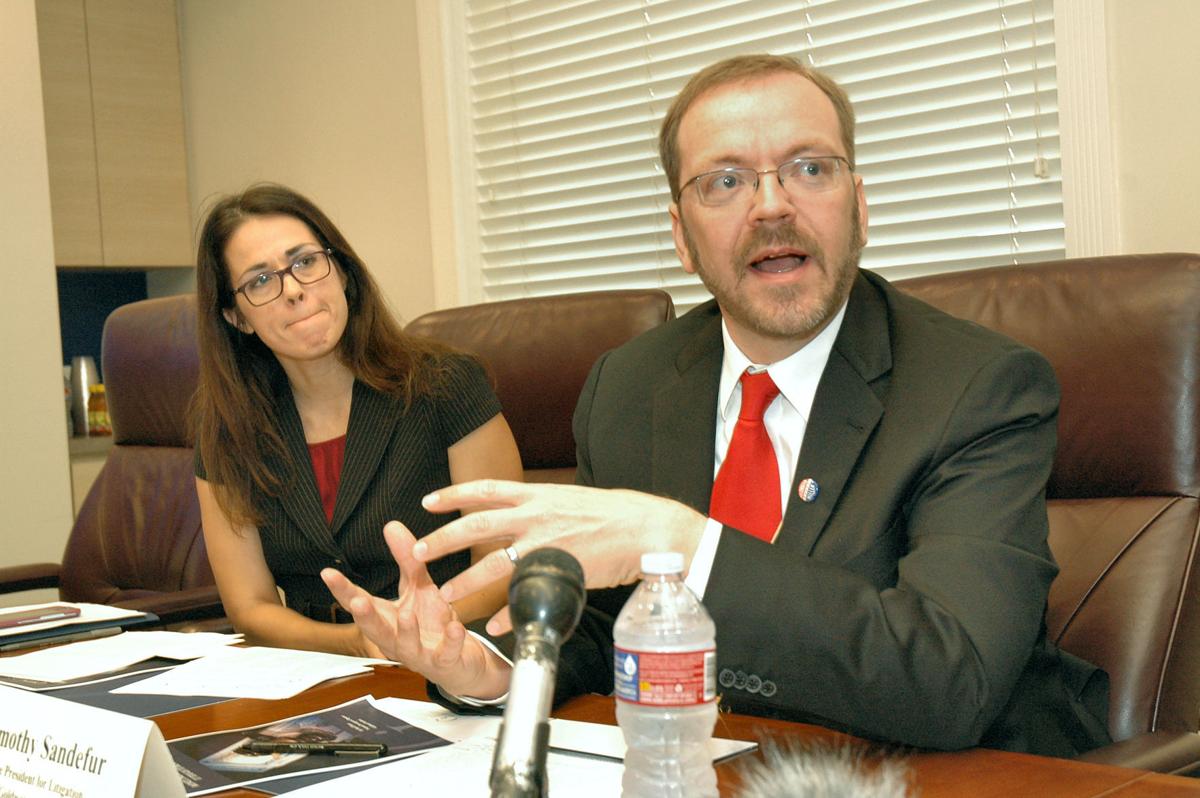PHOENIX — The current system of having city courts in Arizona cities under the control of council members is so flawed that it needs to be overhauled or scrapped entirely, according to a new report.
The study released earlier this week by the Goldwater Institute and the American Civil Liberties Union concludes there is too much opportunity for improper influence, whether overt or covert, when city magistrates are appointed — and can be fired — by the council.
At the very least, the report states, magistrates can be pressured to impose more or higher fines because those go directly into city coffers.
Hand-in-hand with that issue is the council, in turn, sets the budget for the courts. And that, the study says, creates an incentive by magistrates to generate more revenues.
“At a minimum, this undermines the legal system’s credibility,” the study says. “Judicial independence requires that the system not directly benefit from convictions.”
The conclusions are based on an article by Mark Flatten, a former East Valley Tribune reporter who now works for the Goldwater Institute. He said that if people want to see what can go wrong with having magistrates appointed by council members all they need to do is look at what the U.S. Department of Justice found about Ferguson, Missouri, in the wake of rioting there stemming from the police shooting of Michael Brown.
The DOJ report concluded that law-enforcement practices in that city were “shaped by the city’s focus on revenue rather than public safety needs.” And while much of the focus was on the police department, federal investigators found multiple instances of abuse on the court side, such as a Ferguson woman who spent more than $1,000 and six days in jail for parking her car illegally once in 2007.
Ken Strobeck, executive director of the League of Arizona Cities and Towns, said the problems found in Missouri have no bearing on Arizona. In fact, he said, even the report released Tuesday concluded that most Arizona cities actually lose money on operating their court systems.
There are exceptions, though, like Tempe and Paradise Valley. But Strobeck said the report quotes several judges and court officials who said they were never pressured to increase revenues.
“This whole article appears to me to be a solution in search of a problem, as far as Arizona is concerned,” he said.
But both the Goldwater Institute and the ACLU say they see an inherent conflict in the system. At the very least, the new report says, city courts should be financed by the state rather than relying on how much — or how little — the city council agrees to provide.
There also are recommendations for more radical changes, like consolidating city courts with justice of the peace courts which, in turn, are controlled by county superior courts. There’s also the fact that justices of the peace are directly elected.
“That brings that level of accountability to the people,” Flatten said. “And it removes that ability of city councils to say, ‘You know what? Revenues are not looking good. You need to get them up.’”
But the justice of the peace system has its own financial quirks, including that pay is based, in part, on “judicial productivity credits,” meaning the more business a JP does, the greater that person’s pay.
Goldwater Institute attorney Timothy Sandefur said he doesn’t see that as a problem. And he said it’s better than what exists now in city courts.
“What we want is a system that makes it easier for a judge to say, ‘I don’t work for you’ to a city council when they’re pressured to raise revenue,” he said.
If that idea doesn’t fly, the report says the other way to eliminate the financial pressure is to have magistrates elected by voters, the same as all other judges from the Supreme Court right down to the justices of the peace.
What the study envisions is not a true direct election but a system similar to what exists in the Supreme Court, Court of Appeals and superior courts of Pima, Pinal and Maricopa counties.
Specifically, the council would make the initial appointment — but only from a list of those who had been recommended by a special screening panel. And the magistrates would have to stand for election regularly on a retain-or-reject basis.
Alessandra Soler, state director of the ACLU, said it’s not just an academic question of what happens when magistrates report to city councils. She said it harms those who wind up in front of those magistrates.
“When the courts face pressure to generate revenue streams from fines and fees and then institute punitive practices ranging from suspending your driver’s license all the way to the more egregious practice of locking people up for not paying fines, it distorts the criminal justice system,” she said.
Flatten said people should be concerned that city courts have jurisdiction over far more than things like traffic tickets. He said he found instances of people being arrested — and jailed — for everything from violating Mesa’s ordinance against smoking in public to those who ran afoul of a Peoria law about how tall the weeds could be in someone’s yard.
He acknowledged, though, that the actual reason for arresting someone may have been a separate factor above and beyond those ordinance violations.





